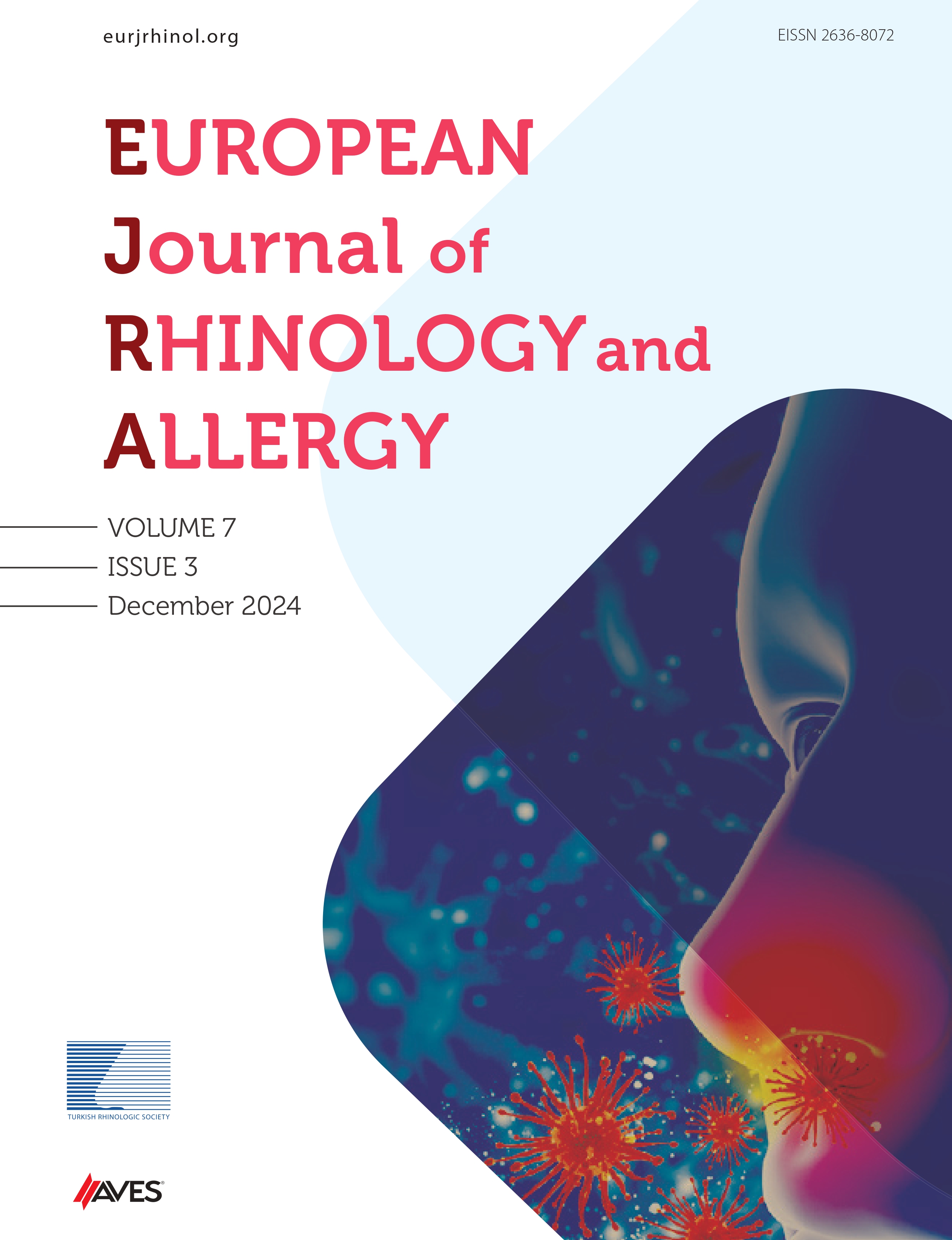Abstract
Objective: This study aimed to examine juniper-pollen levels in Denizli, Turkey, analyze the effect of meteorological factors on the airborne pollen concentrations, and determine the correlation between pollen counts and clinical symptoms in juniper-pollen monosensitive individuals.
Material and Methods: This study was conducted on 14 participants who were detected between 2008 and 2013 with juniper-pollen monosensitivity in the allergy clinic of our hospital. Patients were requested to fill an allergic rhinitis (AR) symptom score sheet daily, and the symptom score data were collected at regular weekly control periods. Juniper-pollen calendar was established using the volumetric method. Meteorological data were obtained from the local meteorology institute.
Results: Juniper pollination season was found to be between the fourth week of January and the fourth week of September. Peak juniper-pollen level was observed in March with 843 pollen grains per m3. Total symptom scores (TSS) of the participants showed significant correlation with the pollen levels (p=0.006, r=0.67). Pollen levels showed a positive correlation with temperature (p=0.002, r=0.739), a negative correlation with humidity (p=0.008, r=−0.653), and did not show any significant correlation with wind speed or precipitation levels.
Conclusion: Juniper-pollen counts show a significant and positive correlation with clinical symptoms in juniper-pollen monosensitizied individuals.
Cite this article as: Şimşek F, Mengi E, Topuz B. Juniper-Pollen Monosensitivity; Correlation Between Airborne Pollen Concentrations and Clinical Symptoms In Denizli, Turkey. Eur J Rhinol Allergy 2018; 1: 63-6.

.png)

.png)